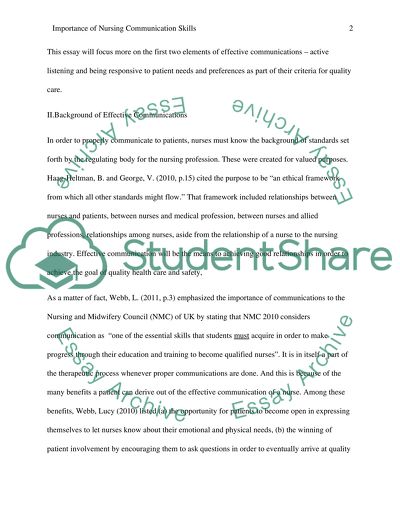Cite this document
(“Importance Of Nursing Communication Skills Essay”, n.d.)
Retrieved from https://studentshare.org/nursing/1455727-importance-of-nursing-communication-skills
Retrieved from https://studentshare.org/nursing/1455727-importance-of-nursing-communication-skills
(Importance Of Nursing Communication Skills Essay)
https://studentshare.org/nursing/1455727-importance-of-nursing-communication-skills.
https://studentshare.org/nursing/1455727-importance-of-nursing-communication-skills.
“Importance Of Nursing Communication Skills Essay”, n.d. https://studentshare.org/nursing/1455727-importance-of-nursing-communication-skills.


